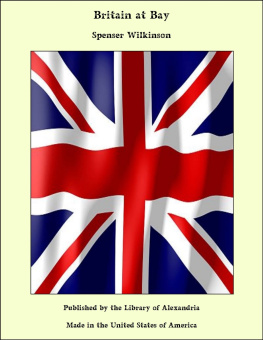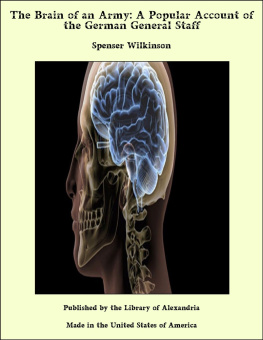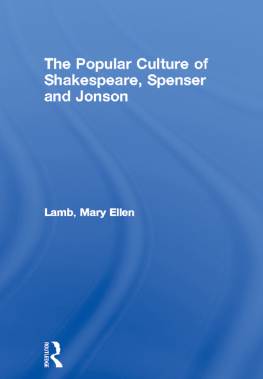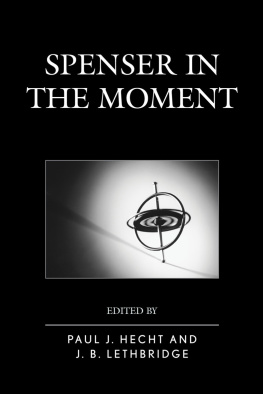CHAPTER
I. THE NATION AND THE PARTIES
II. DEFEAT
III. FORCE AND RIGHT
IV. ARBITRATION AND DISARMAMENT
V. THE NATIONALISATION OF WAR
VI. THE BALANCE OF POWER
VII. THE RISE OF GERMANY
VIII. NATIONHOOD NEGLECTED
IX. NEW CONDITIONS
X. DYNAMICSTHE QUESTION OF MIGHT
XI. POLICYTHE QUESTION OF RIGHT
XII. THE NATION
XIII. THE EFFECT OF THE NATIONALISATION OF WAR UPON LEADERSHIP
XIV. THE NEEDS OF THE NAVY
XV. ENGLAND'S MILITARY PROBLEM
XVI. TWO SYSTEMS CONTRASTED
XVII. A NATIONAL ARMY
XVIII. THE COST
XIX. ONE ARMY NOT TWO
XX. THE TRANSITION
XXI. THE PRINCIPLES ON WHICH ARMIES ARE RAISED
XXII. THE CHAIN OF DUTY
Chapters XIV. to XX. have appeared as articles in the Morning Post and are by kind permission reproduced without substantial change.
I
THE NATION AND THE PARTIES
"I do not believe in the perfection of the British constitution as an instrument of war ... it is evident that there is something in your machinery that is wrong." These were the words of the late Marquis of Salisbury, speaking as Prime Minister in his place in the House of Lords on the 30th of January 1900. They amounted to a declaration by the British Government that it could not govern, for the first business of a Government is to be able to defend the State of which it has charge, that is, to carry on war. Strange to say, the people of England were undisturbed by so striking an admission of national failure.
On the 16th of March 1909 came a new declaration from another Prime Minister. Mr. Asquith, on the introduction of the Navy Estimates, explained to the House of Commons that the Government had been surprised at the rate at which the new German navy was being constructed, and at the rapid growth of Germany's power to build battleships. But it is the first duty of a Government to provide for national security and to provide means to foresee. A Government that is surprised in a matter relating to war is already half defeated.
The creation of the German navy is the creation of means that could be used to challenge Great Britain's sea power and all that depends upon it. There has been no such challenge these hundred years, no challenge so formidable as that represented by the new German fleet these three hundred years. It brings with it a crisis in the national life of England as great as has ever been known; yet this crisis finds the British nation divided, unready and uncertain what leadership it is to expect.
The dominant fact, the fact that controls all others, is that from now onwards Great Britain has to face the stern reality of war, immediately by way of preparation and possibly at any moment by way of actual collision. England is drifting into a quarrel with Germany which, if it cannot be settled, involves a struggle for the mastery with the strongest nation that the world has yet seena nation that, under the pressure of necessity, has learnt to organise itself for war as for peace; that sets its best minds to direct its preparations for war; that has an army of four million citizens, and that is of one mind in the determination to make a navy that shall fear no antagonist. A conflict of this kind is the test of nations, not only of their strength but also of their righteousness or right to be. It has two aspects. It is first of all a quarrel and then a fight, and if we are to enter into it without fear of destruction we must fulfil two conditions: in the quarrel we must be in the right, in the fight we must win. The two conditions are inseparable. If there is a doubt about the justice of our cause we shall be divided among ourselves, and it will be impossible for us to put forth the strength of a united nation.
Have we really a quarrel with Germany? Is she doing us any wrong? Some of our people seem to think so, though I find it hard to say in what the wrong consists. Are we doing her any wrong? Some Germans seem to think so, and it behoves us, if we can, to find out what the German grievance is.
Suppose that there is a cause for quarrel, hidden at present but sooner or later to be revealed. What likelihood is there that we shall be able to make good our case in arms, and to satisfy the world and posterity that we deserved to win?
Germany can build fleets as fast as we can, and although we have a start the race will not be easy for us; she has the finest school of war that ever existed, against which we have to set an Admiralty so much mistrusted that at this moment a committee of the Cabinet is inquiring into its efficiency.
Is it not time for us to find the answer to the question raised by Lord Salisbury nine years ago, to ascertain what it is that interferes with the perfection of the British constitution as an instrument of war, and to set right what is wrong with our machinery?
The truth is that we have ceased to be a nation; we have forgotten nationhood, and have become a conglomerate of classes, parties, factions, and sects. That is the disease. The remedy consists in reconstituting ourselves as a nation.
What is a nation? The inhabitants of a country constituted as one body to secure their corporate being and well-being. The nation is all of us, and its government is trusteeship for us all in order to give us peace and security, and in order that in peace and security we may make each other's lives worth living by doing each the best work he can. The nature of a nation may be seen by distinguishing it from the other nations outside and from the parties within. The mark of a nation is sovereignty, which means, as regards other nations, the right and the power to make peace with them or to carry on war against them, and which means, as regards those within, the right and the power to command them.
A nation is a people constituted as a State, maintaining and supporting a Government which is at once the embodiment of right and the wielder of force. If the right represented by the Government is challenged, either without or within, the Government asserts it by force, and in either case disposes, to any extent that may be required, of the property, the persons, and the lives of its subjects.
A party, according to the classical theory of the British constitution, is a body of men within the State who are agreed in regarding some measure or some principle as so vital to the State that, in order to secure the adoption of the measure or the acceptance of the principle, they are willing to sink all differences of opinion on other matters, and to work together for the one purpose which they are agreed in regarding as fundamental.
The theory of party government is based on the assumption that there must always be some measure or some principle in regard to which the citizens of the same country will differ so strongly as to subordinate their private convictions on other matters to their profound convictions in regard to the one great question. It is a theory of permanent civil war carried on through the forms of parliamentary debate and popular election, and, indeed, the two traditional parties are the political descendants of the two sides which in the seventeenth century were actually engaged in civil war. For the ordinary purposes of the domestic life of the country the system has its advantages, but they are coupled with grave drawbacks. The party system destroys the sincerity of our political life, and introduces a dangerous dilettantism into the administration of public business.
A deliberative assembly like the House of Commons can reach a decision only by there being put from the chair a question to which the answer must be either Yes or No. It is evidently necessary to the sincerity of such decisions that the answer given by each member shall in every case be the expression of his conviction regarding the right answer to the question put. If every member in every division were to vote according to his own judgment and conscience upon the question put, there would be a perpetual circulation of members between the Ayes to the right and the Noes to the left. The party system prevents this. It obliges each member on every important occasion to vote with his leaders and to follow the instruction of the whips. In this way the division of opinion produced by some particular question or measure is, as far as possible, made permanent and dominant, and the freedom of thought and of deliberation is confined within narrow limits.












